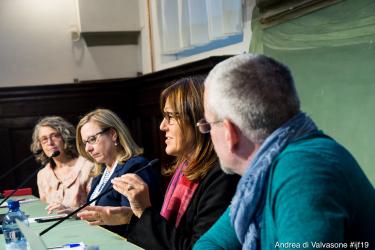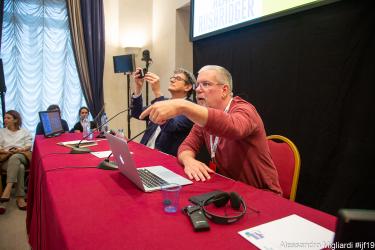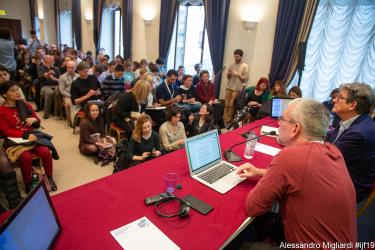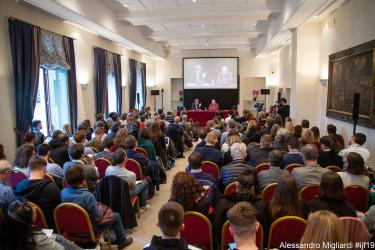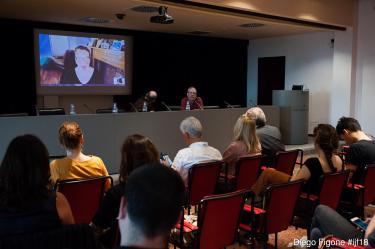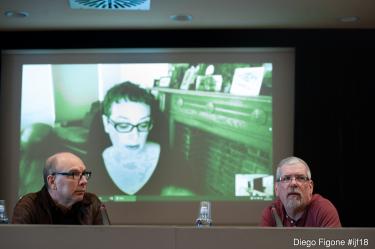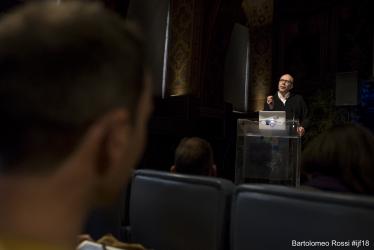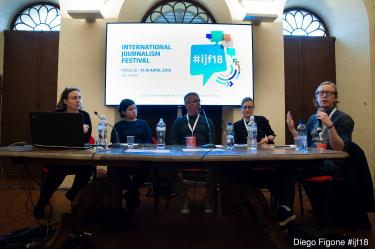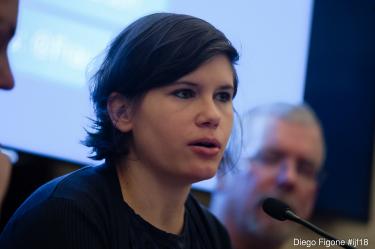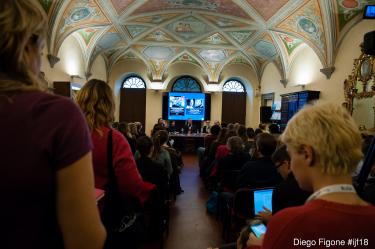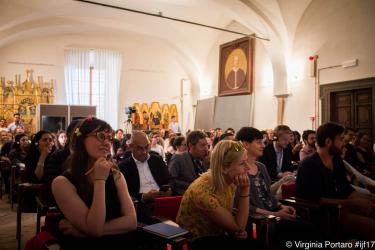Rightly or wrongly, a lot of journalists and publishers have come to rely on Twitter and Facebook to promote their work, reach audiences, respond to criticism, and in some cases generate revenue. Twit...
Mathew Ingram
freelance technology writerThe internet, as we currently know it, is in the midst of a crucial pivot. For much of the past decade, online life has been dominated by a handful of powerful social media platforms–walled gardens ...
Should media organizations and journalists accept funding from Google and Meta?
Over the past few years, Google and Meta have given hundreds of millions of dollars to journalistic organisations, and have said they plan to give away hundreds of millions more. Some believe this kin...
When basic freedoms -- including freedom of expression -- are under attack in democracies around the world, and when climate change is accelerating, staying with traditional newsroom practices isn't j...
The journalism industry is struggling financially around the world, with advertising revenues coming under increasing pressure. Meanwhile, two of the companies most responsible for that pressure — G...
The public editor paradigm: rethinking media accountability and transparency in the digital age
Does the role of public editor require rethinking? Should the role of a public editor that holds news organizations to account for their journalistic standards be an inside or outside job? When Kyle P...
Journalistic "business as usual" is a disaster for democracy, and civilization
When basic freedoms -- including freedom of expression -- are under attack in democracies around the world, and when climate change is accelerating, staying with traditional newsroom practices isn't j...
Around the world, most recently including liberal democracies, journalism and journalists are under attack. But that is a symptom of a much deeper trend: a move away from the basic freedoms that were ...
So you've joined the Trust Project. Now the real work begins. How to marshall newsroom resources to optimize for trust. Is all this new work worth it? What can news organizations learn about working t...
Presentation of the book Breaking News: The Remaking of Journalism and Why It Matters Now (2018) by Alan Rusbridger. Moderated by Mathew Ingram. How do we know any more what is true and what isn’...
Presentation of the book Democracy hacked: how technology is destabilising global politics (2018) by Martin Moore. Moderated by Mathew Ingram. In the space of one election cycle, authoritarian gove...
As platform companies have grown to mediate core aspects of our society, a central question has emerged of who should and can hold them accountable? With many governments unwilling or unable to govern...
#ijf18talk by Jay Rosen. Moderated by Mathew Ingram. We are still in the early days of the wake-up call for news publishers as they discover that the digital ad business will never be a reliable mean...
Why algorithms will define our lives soon and what that means for the media industry
Algorithms are the new gatekeepers. They are having an impact what people know about the world, which information they see and what they do not see. This is also a challenge for journalists and media ...
Description to come.
Big data, when combined with certain algorithms, can be lethal. It makes citizens naked to states and corporations, prone to manipulation and abuse. Is it possible to resist their tyranny and expand f...
Description to come.
Journalism and Silicon Valley: the changing relationship between the news industry and social platforms. There is no more intriguing or important commercial relationship in journalism today than th...
Newsrooms adapting to the digital era suddenly have a sometimes overwhelming array of new production processes and options. But they have new helpers too: tech startups focused on helping them disco...
Thanks to social media everyone can have an opinion and a voice, but should journalists get personal too? Emotional imagery and words are a great way to get traffic on social media or to get an aud...
Creating community: how effective curation of interactive spaces can bring readers together
What happens when readers who care about a topic find a space where they can share their ideas, photos, and videos with like-minded people? Community: the holy grail of interactivity, chock full of ...
As news organizations try to distinguish themselves in a crowded field, opinion takes on an increasingly important role. This panel will look at the spectrum of opinion - from news with a voice to a...
"An international team of journalists with literally dozens of years’ worth of combined experience as online community organizers, storytellers and curators. We take pride in being active, engaged...
The fight for survival – in the journalism jungle at least - is very much still on. The single hats-off winning business model has yet to be found - assuming there is one. But there is certainly n...
The relationship between Google and news publishers is ambiguous. Some publishers, as witnessed by the closure request of GoogleNews in Spain, continue to think of Google as a content thief. But the...
The end (of an article/video) is just the beginning: the significance of online comments
In the old world of print-only newspaper journalism, once a journalist had sent his/her article to the editor it was job done and time to head to the bar. Feedback meant one of three things; a rocket ...
For more information on the Brown Moses blog, read Mathew Ingram's article The rise of Brown Moses: how an unemployed British man has become a poster boy for citizen journalism
If newspapers are "zombies", journalism wants to survive and prosper. Economic sustainability is the philosopher's stone that everyone is still searching for, starting from one certainty; in a digital...
Verification Handbook: a definitive guide to verifying digital content for emergency coverage
The Verification Handbook is a groundbreaking new resource for journalists and aid responders, which provides step-by-step guidelines for using user-generated content (UGC) during emergencies. Publish...
Teaching the fish how to walk: five things old media can learn from new media Keynote speech by Mathew Ingram. Introduction by Claudio Giua. A consideration of some of the skills and principles th...






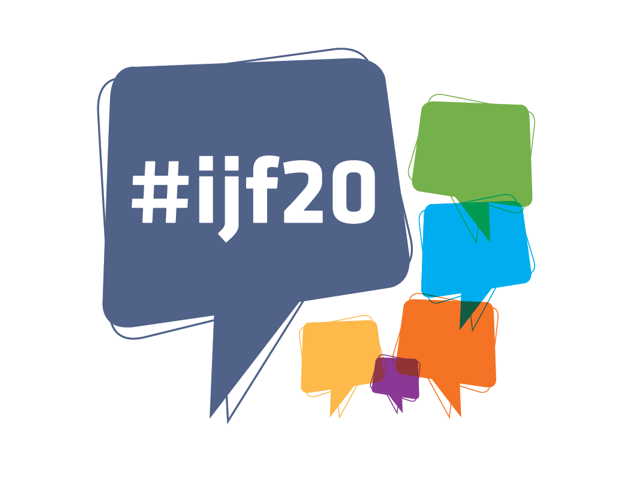
























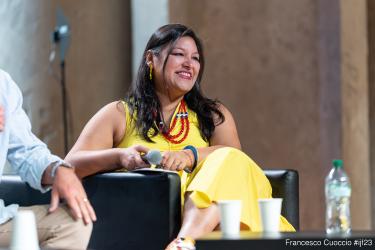

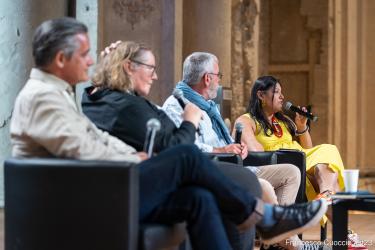

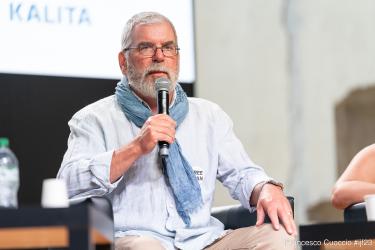







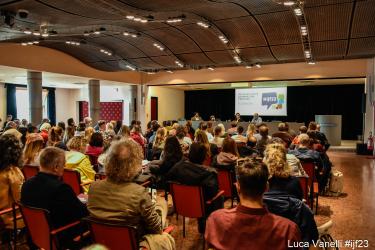

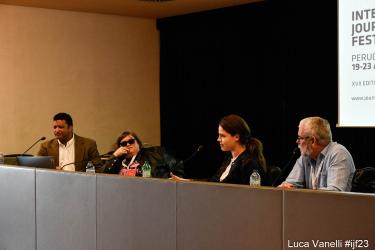

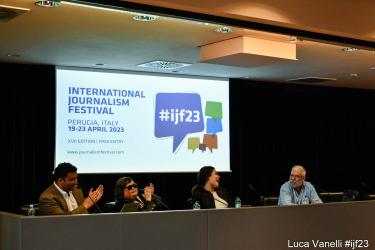









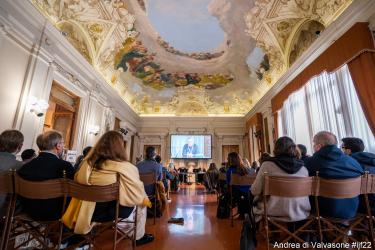




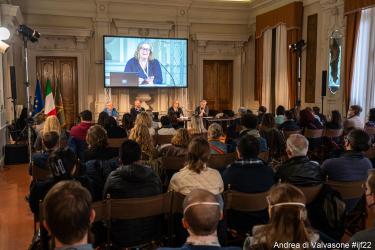


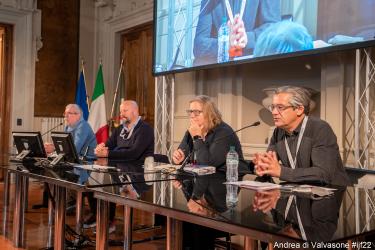

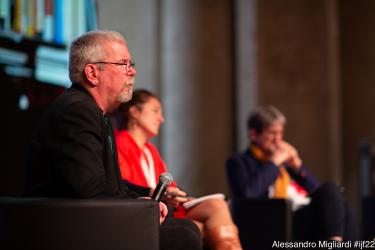
















.jpg)





